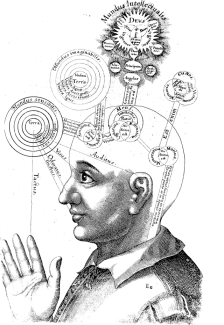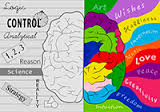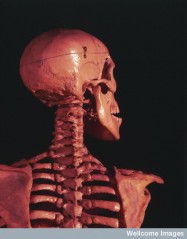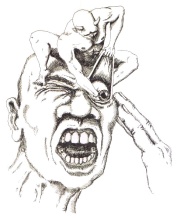Your reality is a subjective illusion.
We are wired to believe that what we see and hear and feel is what is out there in the environment, that we perceive our surroundings as they are, as a video camera might record a scene.
What the environment actually contains however is a collection of physical laws and properties and what we actually perceive is what our bodily senses have picked up and our brains have interpreted for us. In this way the brain functions as something of an internal video editor constantly chopping and changing the selective information it receives to create a unique view of the world.
One particu larly beautiful example of how our brain creates for us the world we know is in the anatomy of the visual system. Visual information enters our eyes as waves of light and is focused onto the back of our eyeballs to be sent along to the brain for interpretation. Unbeknownst to the average individual however, not all the information impinging on the eyes is sent along to the brain. There is a blind-spot located at the back of each eye with no connections to the brain whatsoever, any information from our field of vision that hits this spot is lost to us. In this case our brain steps up to literally fill in the blanks based on the surrounding information, giving us the illusion of a complete picture.
larly beautiful example of how our brain creates for us the world we know is in the anatomy of the visual system. Visual information enters our eyes as waves of light and is focused onto the back of our eyeballs to be sent along to the brain for interpretation. Unbeknownst to the average individual however, not all the information impinging on the eyes is sent along to the brain. There is a blind-spot located at the back of each eye with no connections to the brain whatsoever, any information from our field of vision that hits this spot is lost to us. In this case our brain steps up to literally fill in the blanks based on the surrounding information, giving us the illusion of a complete picture.
We can also appreciate how different each of our perceptions must be when we consider the fact that each and every brain is distinct in its neural connections and structures, in the memories it holds and the way in which it interprets and integrates information.
The human senses also vary greatly between individuals. For example; the average human adult can hear sounds at frequencies of 20-20,000 Hertz. As we grow older we tend to loose the hair cells that pass the highest-frequency sounds from the environment to our brains, children can therefore hear tones up to a higher frequency of 25,000Hz and the elderly often cannot hear tones as high as 20,000Hz (you can actually try a few online tests to work out your own hearing age).
Thus, our understanding of the world is but a conjuring trick, a rough model of what is happening in the environment based on unconscious integration within the brain of fragments of perception, memory and supposition.
What is truly amazing and really worth taking away from this is how we all get around as well as we do considering how differently each of us perceives the world, considering we are each living inside our own uniquely edited illusion…






